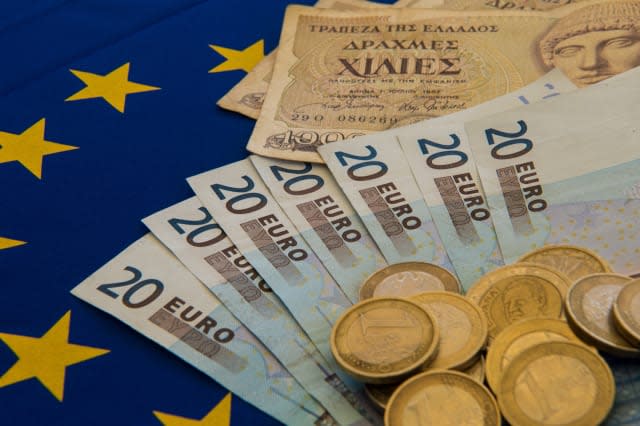Greek crisis: Should I take extra cash to Greece?

After British holidaymakers were warned to take cash to Greece in case the banks close the ATM machines amid the growing debt crisis, now the Greek council has recommended a 60-euro limit on ATM withdrawals in the country from tomorrow (Tuesday). But should UK tourists only take cash on holiday in Greece? And what do these ATM changes mean for foreign travellers?
The Greek financial stability council has recommended ATMs are shut on Monday and that withdrawals are limited to 60 euros (£42) a day when they reopen on Tuesday, a source told Reuters.
But Deputy Minister for Tourism, Elena Kountoura, says that visitors currently in Greece as well as people planning to visit Greece will not be affected by the latest developments and they can continue to enjoy their holiday in Greece without any problems whatsoever.
In a statement, the UK Greek National Tourism Organisation said the new ATM limit will not apply to people who have debit and credit cards that were issued abroad.

"The Ministry for Economy, Infrastructure, Shipping and Tourism would like inform visitors to Greece that capital controls introduced by the Greek Government do not apply to those wishing to withdraw money from an ATM or carry out any other type of transaction using credit or debit cards issued abroad," the statement reads.
"Moreover, the Ministry does not anticipate any inconvenience in visitors' every day holiday experiences, neither in the islands nor in mainland Greece, as there are adequate fuel supplies, products and services."
The Foreign Office's current advice for British tourists travelling to Greece states: "When travelling outside of the UK, you should take more than one means of payment with you (cash, debit card, credit card).
"Visitors to Greece should be aware of the possibility that banking services – including credit card processing and servicing of ATMs – throughout Greece could potentially become limited at short notice. Make sure you have enough Euros in cash to cover emergencies, unforeseen circumstances and any unexpected delays."

Greece holidays firm Olympic Holidays has moved to assure travellers by setting up a system whereby holidaymakers can draw cash from the company's resort representatives, secured against a credit or debit card.
Olympic Holidays' chief executive George Michalias said: "In view of the announcement about the closure of banks in Greece for the next week or so, we want to reassure our guests that there is no reason not to travel to Greece, both now and in the coming weeks.
"Of course we recommend that holidaymakers take more cash with them than usual, but we are also going the extra mile to ensure that our guests need not worry about running out of cash, so they can enjoy their Greek holiday to the full."

For people worried as to whether the euro will be accepted, Andrew Brown at Post Office Travel tells AOL Travel: "It will still be the legal tender for some time to come, irrespective of what happens to Greece's membership of the eurozone and its financial position."
"If Greece leaves the eurozone, the euro will continue to be the legal currency until the Greek drachma can be re-introduced and that could take around 18 months."
Mr Brown advises UK travellers to split their cash between family members, so that no one person is carrying too much. Once arrive in a destination, tourists should use safes and deposit boxes to store cash, so that they are never carrying too much around with them.
Related articles
Half-price holidays in Greece as euro exit looms
What the Greek exit from the Euro means for British holidaymakers
%VIRTUAL-TripAdvisorWidget%







